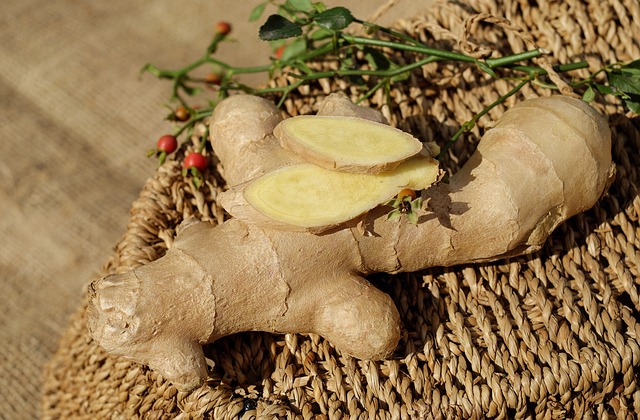Ginger is a ubiquitous condiment in a number of cuisines across the world. It is known for its delicious albeit strong taste, its ability to spice up a number of dishes, and also its capability to ensure that regular consumption keeps a number of illnesses at bay. However, things certainly change considerably during pregnancy, and you will probably find yourself wondering whether it would be safe for you to consume any form of ginger when you are pregnant. You have likely been an equal number of words of caution and of encouragement, and you are torn between your desire to include some of this delicious root in your food and concern for you and your child’s health. In this article we have tried to accumulate all the relevant information and put your mind to rest.
Cures morning sickness
Coming to the benefits, there are a couple that should make any pregnant woman jump to include this root into their daily diet. To begin with, ginger is known to battle morning sickness. Any woman who has been pregnant or is in her first trimester will vouch for this terrible feeling every morning. Morning sickness is an extremely common symptom of pregnancy, and while it lasts only during the first trimester, the pregnancy certainly makes its presence felt during this period of time. Like a few other foods, ginger is also known to keep morning sickness at bay. A cup of ginger infused tea, a ginger candy, or a piece of dried or fresh ginger can help in reducing morning sickness considerably.
Minimizes constipation
Yet another great advantage of ginger is its ability to minimize digestive disorders. Every pregnant woman knows that digestive disorders are rampant during those nine months, and the condition only worsens as the pregnancy progresses. A little bit of ginger per day can alleviate these problems considerably. It will be no small relief from your when you don’t have to strain on the bowl every morning, thanks to the constipation that is part and parcel of pregnancy.
Nutrient rich
While these are extremely important benefits of eating a little bit of ginger ever day when you are pregnant, it should also be included as a small but important source of nutrition. There are a variety if nutrients in ginger, albeit in small amounts. It supplies iron that help sin blood circulation in the mother and formation of blood in the baby. It also contains Vitamin C, which is essential in creating the immunity system of the fetus. Most importantly, it also contains a little bit of folic acid, which is one of the most important nutrients a growing fetus needs for the development of its spine and neural system, and preventing the formation of any developmental defects of the spine and the neural tube, such as spina bifida.
Low sodium
Ginger has a very low sodium content. Its strong taste also makes it an ideal addition in food that requires a zing, which makes it ideal for the pregnant lady who is likely to lose her appetite from time to time. Besides, since it is imperative that you measure your salt intake during pregnancy, and take very low amounts of it, ginger is a great supplement. It will add the necessary taste to your food without having to risk going overboard with salt content.
Word of caution
Of course, like everything else, it is important to remember that you cannot take ginger wily nilly. The root emits quite a bit of heat, which might not be very good for some pregnancies. Also, be careful about the kind of ginger you are taking. Like most other foods, fresh ginger is the best option. If you are taking ginger extract or ginger supplements, be careful about how much you are consuming. In case of the latter, your daily dose should be much less than what you would take if you were eating fresh ginger, because the concentration is usually higher in extracts.
Also read: Can I drink Coke during pregnancy?
As you probably already know, every pregnancy is different, and there is no one size fits all rule that applies here. Whether you can eat ginger or not will completely depend on your constitution and the nature of your pregnancy. The body undergoes a plethora of changes during this crucial time, and it is likely that your recommended limit of ginner would be significantly more or less than someone you know. So, instead of listening to stories and words of advice from friends, family, and colleagues, it is best to first consult your doctor. Do so especially if you are one of those people who like a bit of ginger in their food, or you belong to a region or ethnicity that heavily uses ginger in its cuisine.

